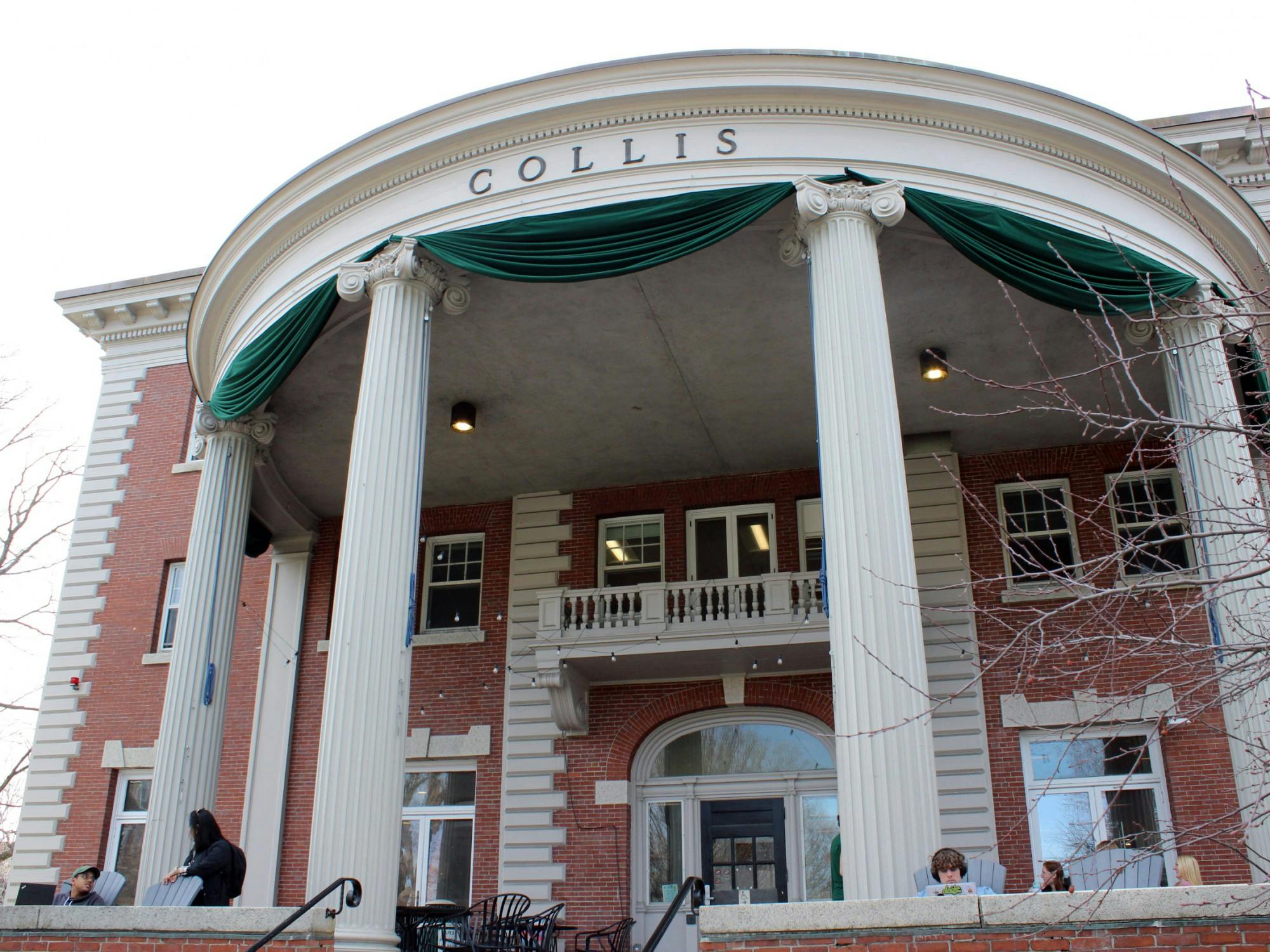On Nov. 3, the Dartmouth Student Government Senate met for its seventh weekly meeting of the fall term. Led by student body president Chukwuka Odigbo ’25, the Senate debated an amendment proposed by deputy town affairs liaison and General Senator Evan Gerson ’27 to “clarify” language in the DSG constitution and allow senators to call “impromptu” votes. The amendment failed 6 - 8 - 3.
The proposed amendment stated “members of DSG may call a vote at any time” during a meeting. In an interview after the vote, Gerson said he had proposed the amendment out of “concern” that student body executives had “suddenly” reinterpreted the DSG constitution to prevent senators from calling votes on issues not the DSG weekly meeting agenda. Gerson said he hoped to formalize the language of the two-year old constitution to allow senators to propose votes.
“The student body executives … have the ability to control the agenda and make edits to the agenda, so in practice, this gives them power to remove votes from even occurring, which to me, is a very scary thought,” Gerson said. “This is overstating a little bit, but [these are] steps that you would imagine in a novel toward an authoritarian regime.”
According to Odigbo, senators may add any item to the agenda that they “wish” to discuss or vote on.
“I do not review or remove what they put on the agenda,” Odigbo wrote in a statement. “[Gerson] knows this, as does every other member of DSG, thus [Gerson’s] statement that I have the power to stop votes from occurring is incorrect.”
In an interview after the meeting, Odigbo said enabling senators to call for votes not on the agenda — which would be allowed by the amendment — would have been “undemocratic.”
Instead, he said he believed it would be “undemocratic” to share an agenda with campus about “boring” topics and to then call “impromptu” votes on important issues, such as budget allocation.
“I think [the amendment is] undemocratic because we don’t have any public members keeping us accountable,” Odigbo said.
Several present senators spoke on the amendment in the context of last spring’s impromptu vote of no confidence in College leadership, which was proposed by East Wheelock House senator Daniel Pruder ’27.
West House Senator Samay Sahu ’27 — who did not support the proposed amendment — said in an interview after the meeting that members of DSG did not know about the vote of no confidence ahead of time, sparking confusion in the chamber.
“We had no proper time to deliberate [on the vote], and if the public knew, I think that there would be double the amount of people at that meeting from a variety of different viewpoints and perspectives,” Sahu said.
North Park House Senator Jude Poirier ’28 noted that there is “some validity” in “springing” votes on DSG members. Poirier said it is the “obligation” of student government representatives to “respond to … complaints or issues or votes that are being called.”
Odigbo said deliberations over the amendment led to “good conversation” on whether DSG’s current system — sending out its agenda to campus before meetings — is “working.” Odigbo said having the ability to call “an impromptu vote once a year [or] once in three quarters” or having a “section on the agenda for open votes” were two “really good suggestions” floated during the meeting.
Despite the amendment’s failure, Gerson said he was “very open” to those discussed alternatives.
Outside the vote, the DSG meeting also welcomed newly-elected senators from the Class of 2028. According to an Oct. 29 email from the Elections Planning and Advisory Committee, Hanna Bilgin ’28 for School House, Kabir Datta ’28 was elected to represent Allen House, Poirier for North Park, Reece Sharp ’28 for West House, Senate Shaw ’28 for South House and Sreshth Tiwari ’28 for East Wheelock. Ana Arzoumanidis ’28 and Taha Tariq ’28 were elected as general house senators, meaning they do not represent a particular housing community.
Poirier said his first meeting was “a little more … contentious” that he had expected.
“I don’t necessarily think that's a bad thing — I think that just speaks to the diversity of viewpoints that everyone in DSG has,” Poirier said.
Roger Friedlander II ’27 and Julia Zichy ’27 were confirmed as non-voting DSG representatives in a closed session vote. The measures passed 19 - 0 - 0 and 20 - 0 - 1, respectively.
The Senate also earmarked $20,000 in rollover funds from last year for an expansion of the Student Issues Survey gift card rewards program with a vote of 15 - 2 - 2.
DSG Senate meetings occur weekly on Sundays at 7 p.m. in Collis 101 and are open to all students.
Correction Appended (Nov. 10, 12 p.m.): In a previous version of this article, Evan Gerson ‘27 said the student body executives have “power to remove votes from even occurring.” In a follow-up statement to The Dartmouth, Chukwuka Odigbo refuted Gerson’s claim. The article has been updated.

Jackson Hyde '28 is a news reporter. He is from Los Angeles, Calif., and is majoring in Government modified with Philosophy.




